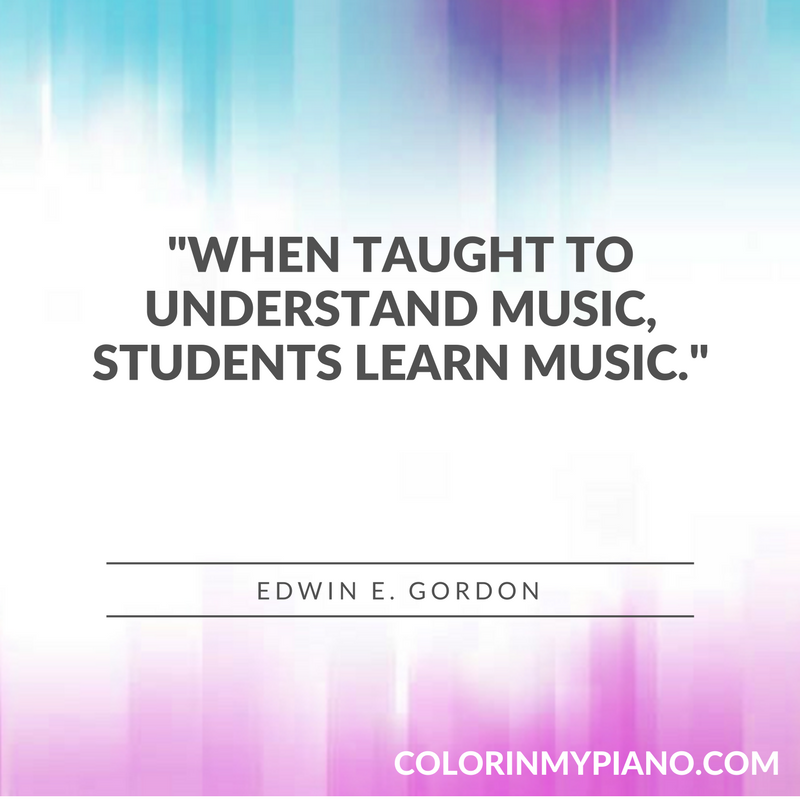
“When taught to understand music, students learn music.”
–Edwin E. Gordon

“When taught to understand music, students learn music.”
–Edwin E. Gordon
Just a quick note today —
I just wanted apologize to anyone who has recently encountered the bug that was impacting the shopping cart on my website. I’m happy to say that I have finally solved the issue! Everything seems to be working properly in the Shop once again.
If you ever encounter any problems with my website, please don’t hesitate to send me an email.
Thanks, and happy weekend!
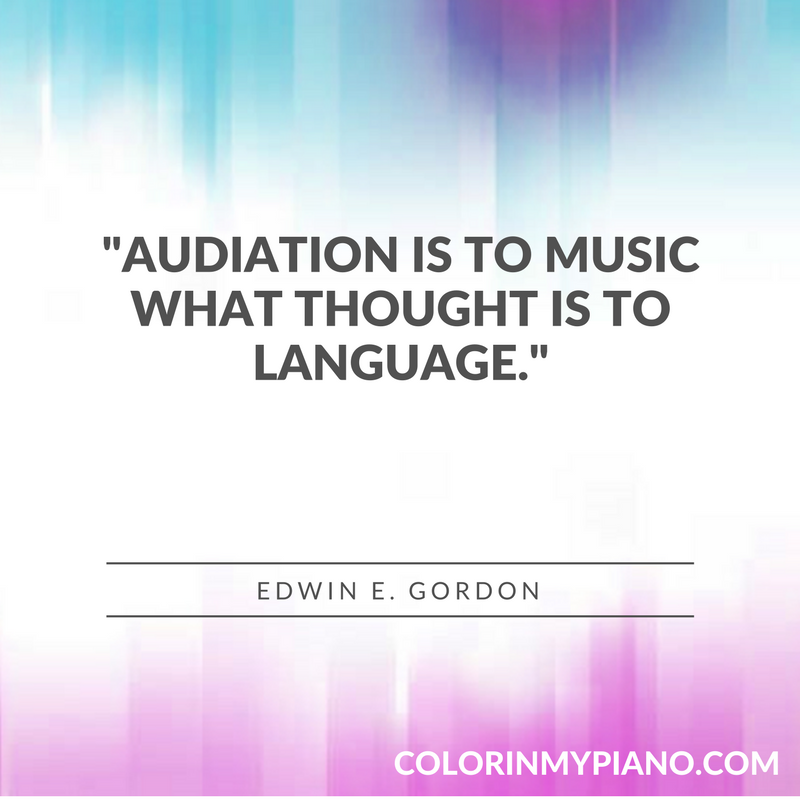
“Audiation is to music what thought is to language.”
— Edwin E. Gordon
Read more here: What is Audiation, Exactly?
I first encountered music learning theory as an undergraduate student in September of 2008, when Hope College (Holland, Michigan) hosted Dr. Edwin E. Gordon (1927-2015) for a five-day visit. I was fascinated by everything Gordon had to say and have carried his influence with me as I went on to complete a Masters degree and start an independent piano studio in following years. In the summers of 2016 and 2017 respectively, I completed the Piano certification and Early Childhood Music certification offered by the Gordon Institute for Music Learning (see GIML.org). The implications of Gordon’s work regarding how we can best teach music resonates with me, and so I continue to familiarize myself with his research and writings.
Music learning theory is a relatively new subject area within academia gaining increasing recognition and respect in recent decades. While music education and early childhood music communities currently are largely familiar with the concept, piano teachers as a whole are mostly unfamiliar with music learning theory.
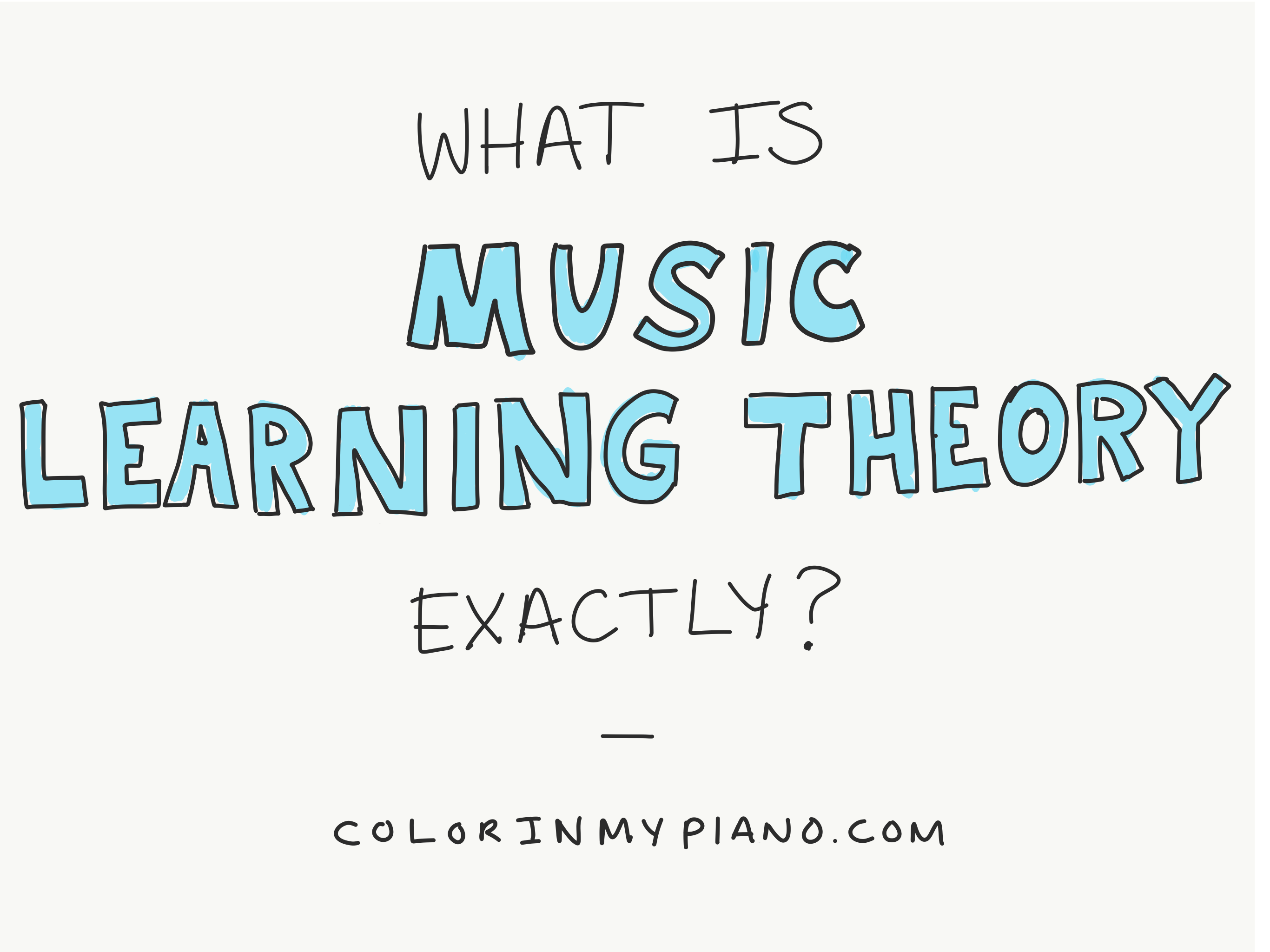
To those new to music learning theory, its name might suggest that it is systematic way to teach music theory. In fact, music learning theory has little to do with music theory; nor is it a curriculum.
To those who happen to hold a strong association between the term “music learning theory” and Edwin E. Gordon, the term might seem synonymous with Gordon’s work. The subject area, however, is larger than one individual’s work — no matter how great his or her contributions. Gordon’s own Music Learning Theory (MLT) exists within the larger subject area known as music learning theory.
I’d like to make some clarifications about the subject of music learning theory. In this short article, I will define the subject of music learning theory and discuss possible benefits for piano teachers who choose to familiarize themselves with music learning theory.
Continue reading “What is “music learning theory”, exactly?”
Happy New Year, my friends!
Who’s planning to attend the 2018 MTNA Conference? This year, the location is Lake Buena Vista, Florida, at Disney’s Coronado Springs Resort, March 17-21, 2018. See the conference website here.
I’m planning to go and would love to meet up with you there! I planning to arrive a day early and perhaps explore Disney. I haven’t been to Disney before, so I am looking forward to seeing what it is all about. If you might be interested in joining up to explore Disney, please send me a message and let me know.
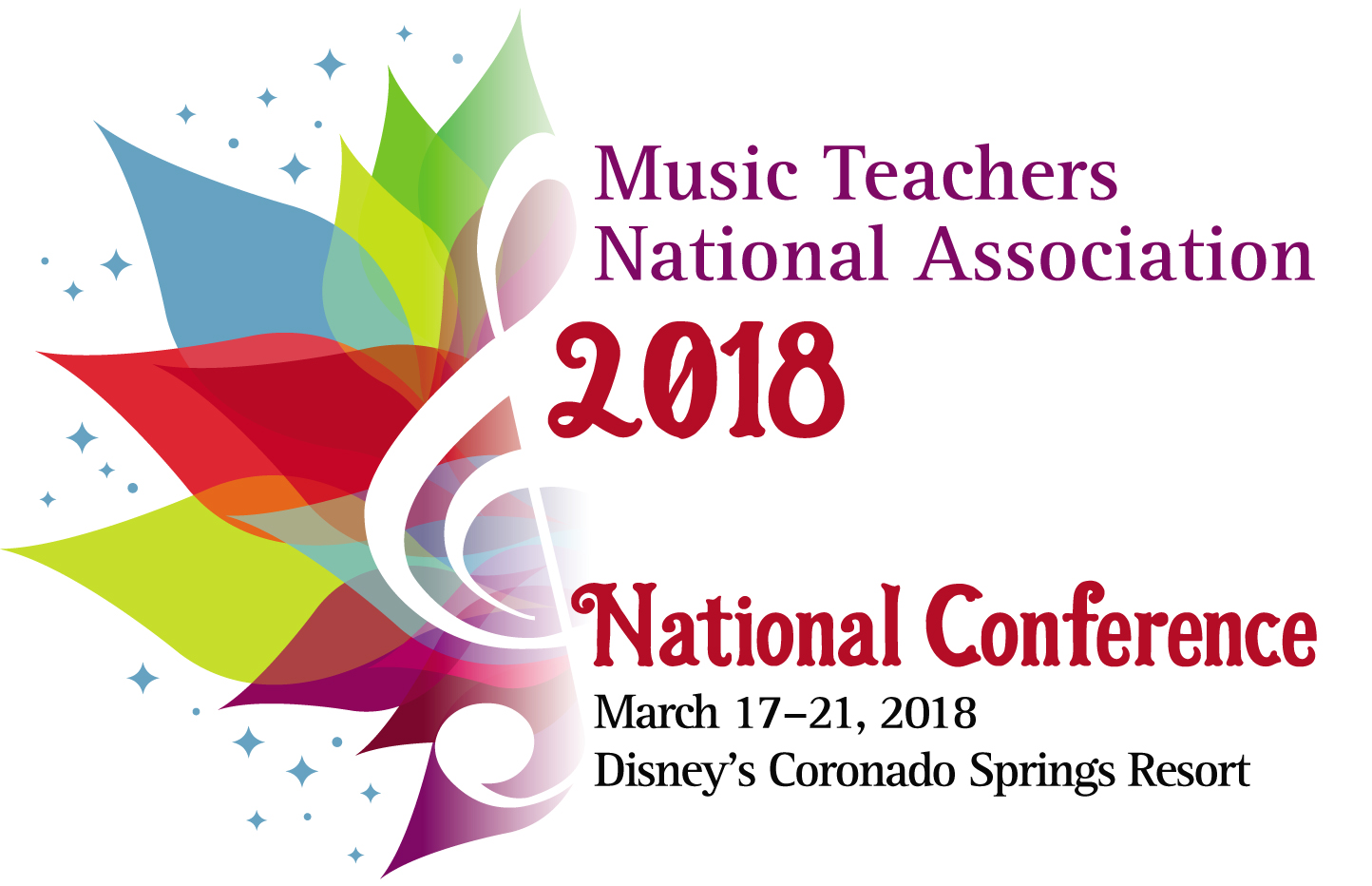
I hope the new year is treating you well thus far. Best wishes!
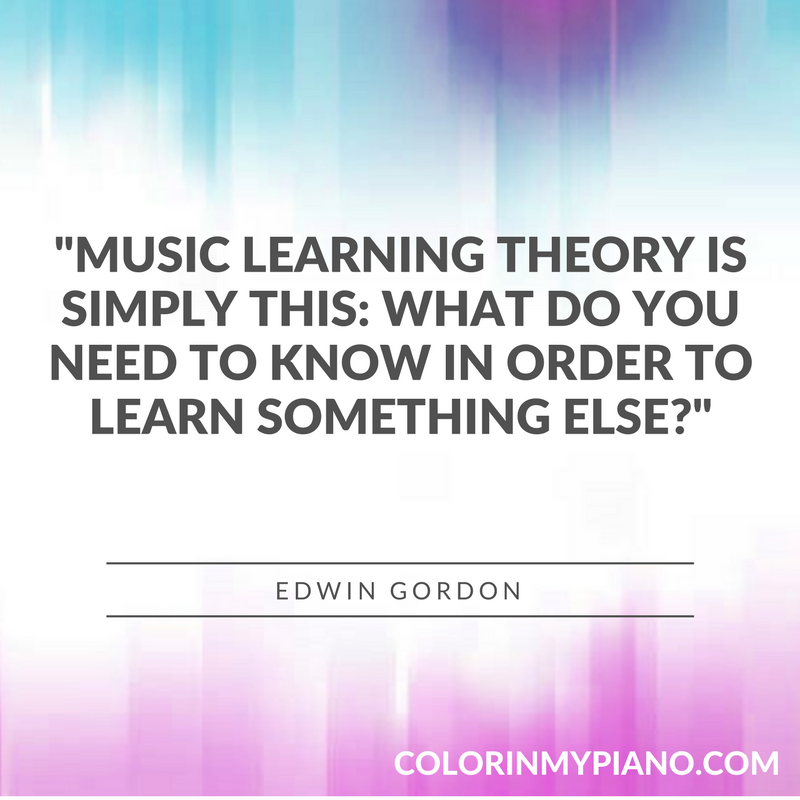
“Music Learning Theory is simply this:
What do you need to know in order to learn something else?”
–Edwin Gordon
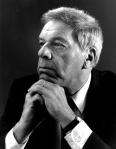 Just a quick note today to let you know about a brand new Facebook group intended for piano teachers who are interested in learning more about Music Learning Theory (MLT) and explore how they can incorporate it into their teaching. Any teacher interested in MLT is welcome to join! The group is called “Edwin E. Gordon and Music Learning Theory for Piano Teachers.” The group is moderated by a few MLT piano teachers including Marilyn Lowe, the author of the Music Moves For Piano method.
Just a quick note today to let you know about a brand new Facebook group intended for piano teachers who are interested in learning more about Music Learning Theory (MLT) and explore how they can incorporate it into their teaching. Any teacher interested in MLT is welcome to join! The group is called “Edwin E. Gordon and Music Learning Theory for Piano Teachers.” The group is moderated by a few MLT piano teachers including Marilyn Lowe, the author of the Music Moves For Piano method.
If you’d like to join, visit the group here and then click the “Join Group” button to request to join the group.
Hope to see you inside the group!
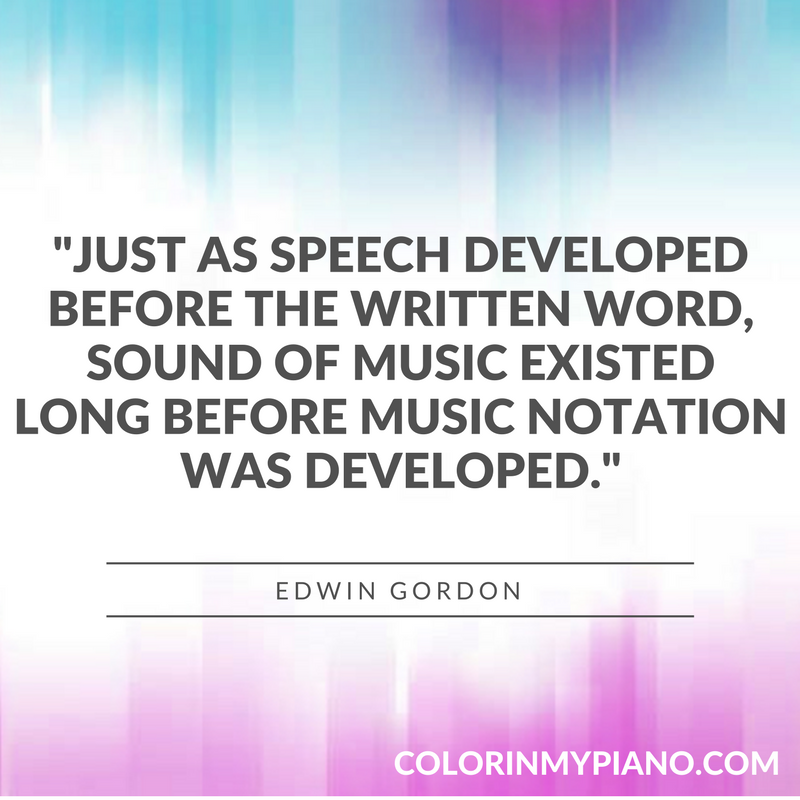
“Just as speech developed before the written word, sound of music existed long before music notation was developed.”
—Edwin E. Gordon
Have you heard of “audiation” before, but perhaps weren’t exactly sure what it meant? Have you wondered: why do we need this new word? Why should audiation matter to us as musicians and music educators?
Audiation isn’t an idea that is going away anytime soon. We are going to continue hearing more about audiation within music education circles. As the term “audiation” is becoming more widely known and increasingly used, it would benefit us to ensure that we have a clear and accurate understanding of the term.
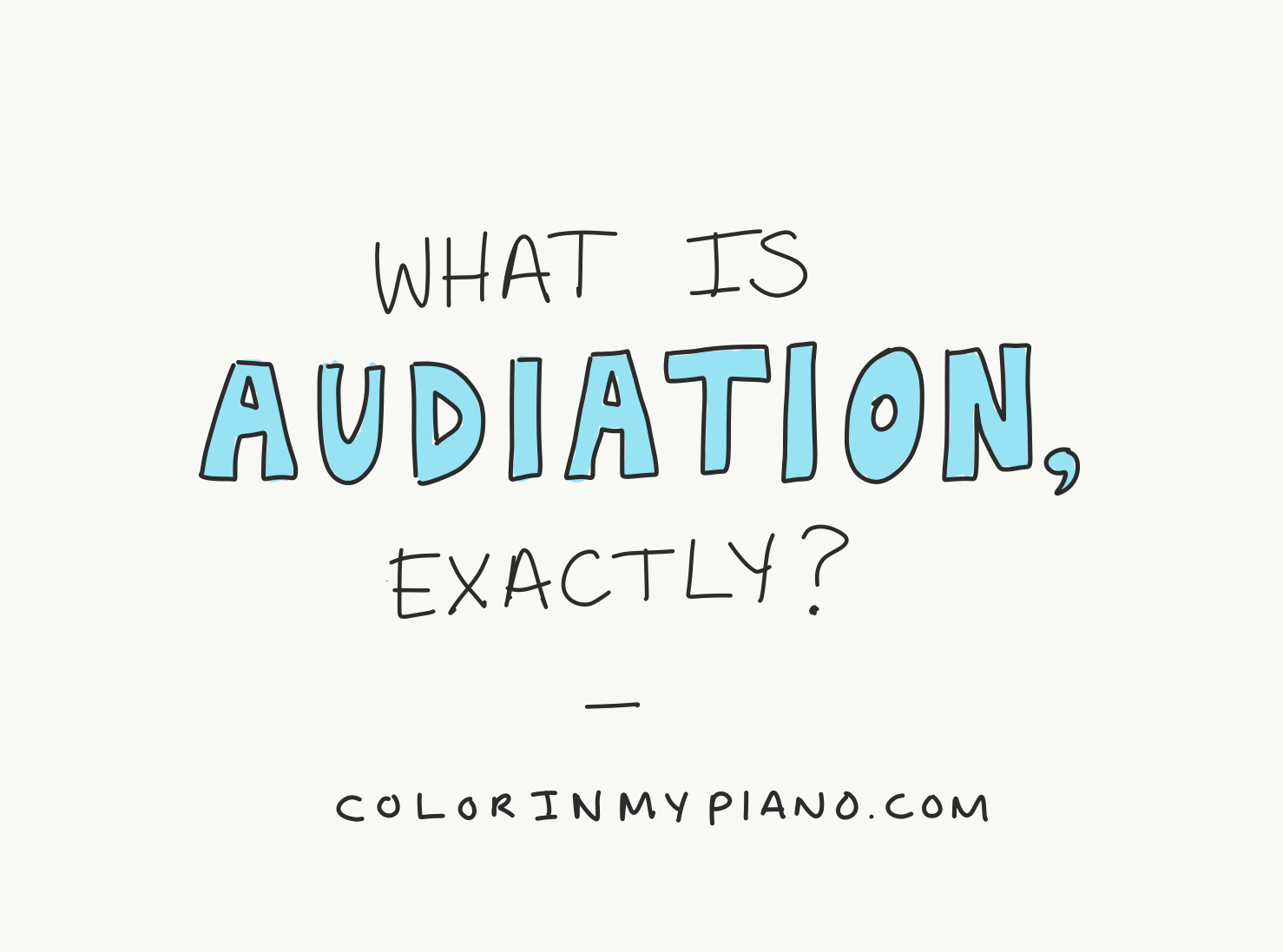
The term “audiation” was coined around 1976 by music professor, researcher, theorist, and author Dr. Edwin Gordon (1927-2015). Audiation is the central focus of a collection of theories about how music is learned, known as Music Learning Theory (MLT).
Audiation refers to a mental process that is both a natural and integral part of music making — and has been since the beginning of time — but has gone unnamed (at least, in the English language) until Gordon came along.
There is power to naming something. Giving something a name means acknowledging it. Continue reading “What is Audiation, Exactly?”
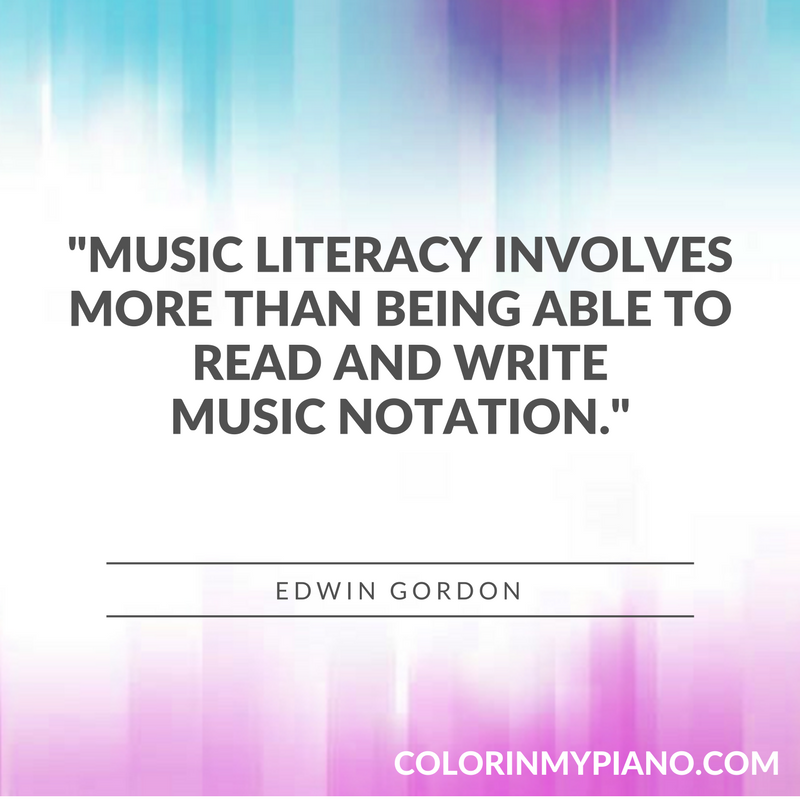
“Music literacy involves more than being able to read and write music notation.”
–Edwin Gordon
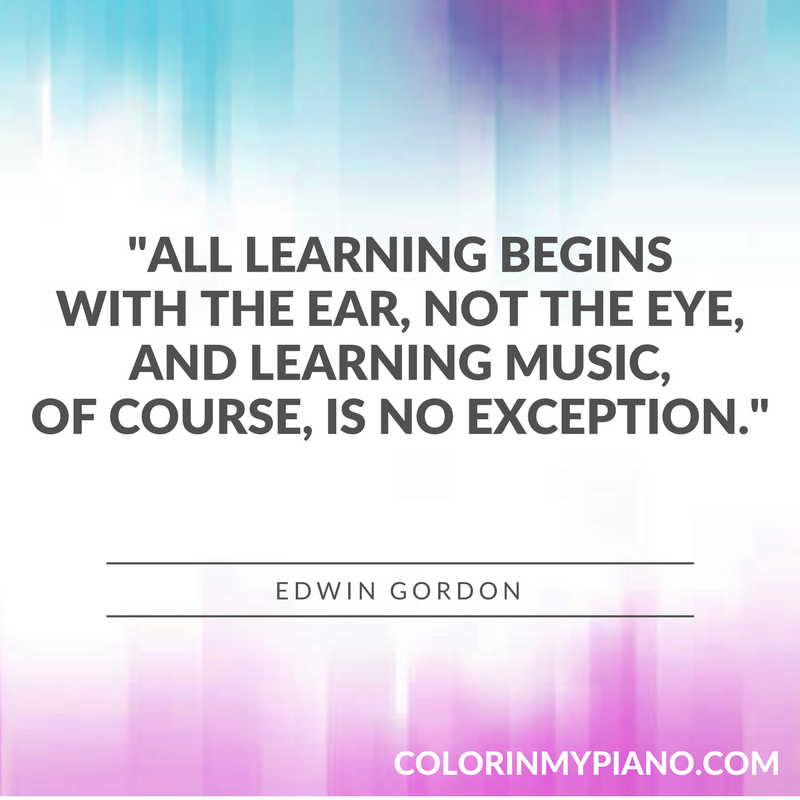
“All learning begins with the ear, not the eye, and learning music, of course, is no exception.”
— Edwin Gordon
I recently came across this video by musician Victor Wooten on YouTube and thought to myself: the ideas expressed here fit very well with MLT (Music Learning Theory)!
Below are my favorite points from this video, along with some of my own commentary regarding the agreement with MLT.
1. Music is in many ways like a language. Think about the way you learned to speak as a child.
MLT practitioners find it very useful to compare the process of language acquisition to music acquisition. It’s not a perfect comparison (as with any analogy), but I have personally found it to be an incredibly useful analogy to keep in mind as a piano teacher.
2. Imagine children being allowed to speak only with those at their same speaking level. It would stunt their progress compared to being allowed to interact with more experienced speakers such as their parents. It’s the same with music: it’s helpful for students to jam along with professionals.
This is a good reminder to play often alongside our students, whether it’s informal duet-playing during lessons or preparation for a performance. And to have our students play together. And consider other ways we can provide opportunities for students to experience playing alongside professional musicians.
This is related to the reason why I like combining multiple ages/levels among my students at our monthly group classes, “Piano Parties.” Students already have individual lesson time instruction customized to their age and level, so why not combine levels for monthly group classes? They can learn so much from interacting with and watching each other. It’s about creating opportunity for the less experienced students to learn from the more experienced, and more experienced students to model for and mentor the less experienced. Continue reading “YouTube: Music as a Language by Victor Wooten”
Your Cart is Empty